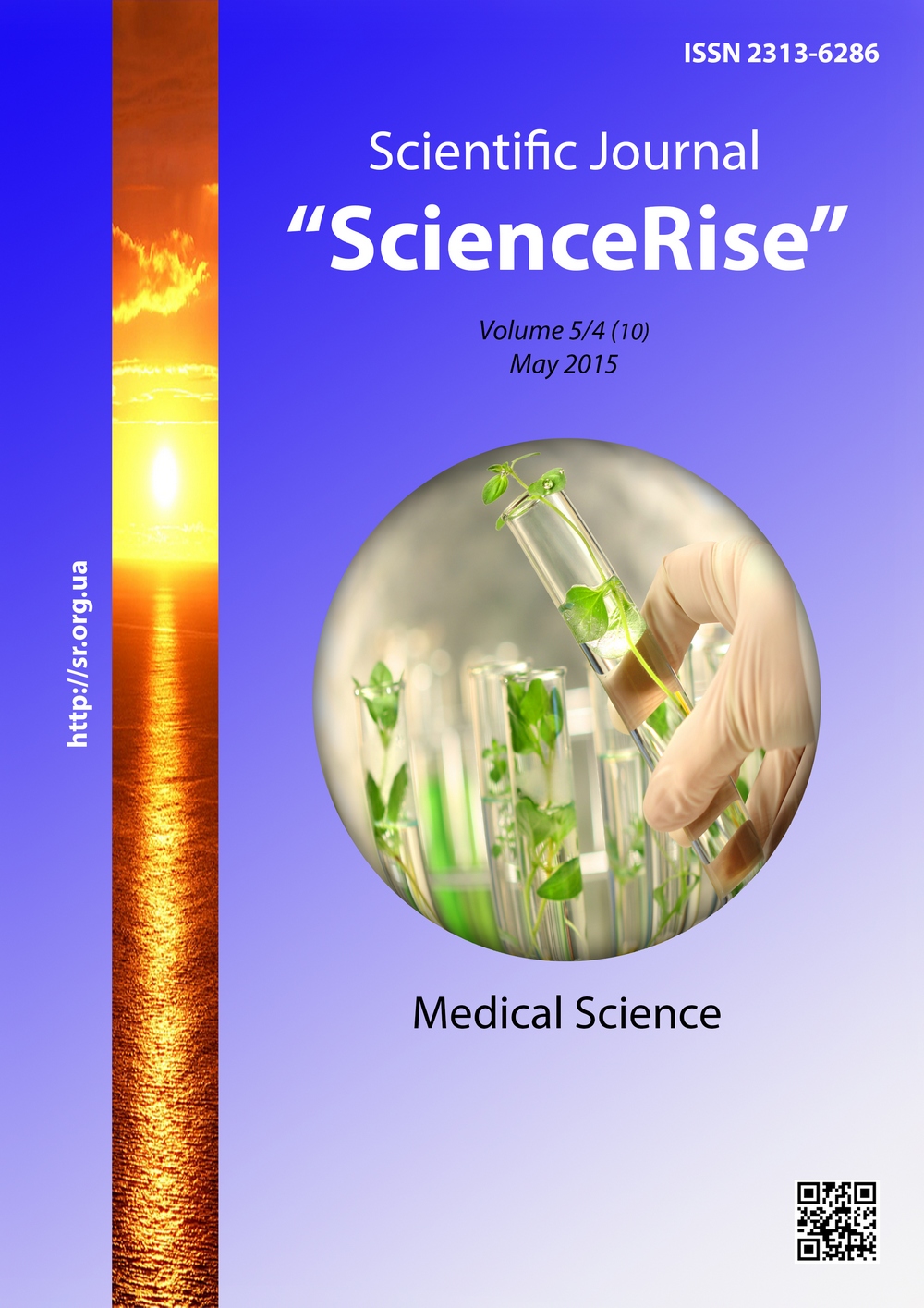The impact of neurometabolic therapy on quality of life in patients with consequences of traumatic brain injuries
DOI:
https://doi.org/10.15587/2313-8416.2015.42970Keywords:
consequences of mild traumatic brain injury, quality of life, metabolic therapyAbstract
The aim of the research was to determine the quality of life of patients with consequences of mild traumatic brain injuries for the effectiveness estimation of the neurometabolic therapy.
Materials and methods. 67 patients with consequences of mild traumatic brain injuries were examined. Patients were divided into two groups: the first group (23 males and 10 females) included patients who received symptomatic therapy. The second group included patients (24 males and 10 females) who received symptomatic therapy and an additional course of neurometabolic therapy. The control group included 30 practically healthy individuals without TBI, corresponding to the examined group by sex and age.
Results. Integral assessment of QoL by the SF-36 health survey scales showed a significant reduction in quality of life by the scales of pain intensity, life activity, social functioning, emotional functioning and mental health. Application of the treatment course of neurometabolic therapy for patients with consequences of mild traumatic brain injury promotes the normalization of neuropsychological disorders in these patients, which has a positive effect on the subjective assessment of quality of life.
Conclusion. Conducting neurometabolic treatment for patients with consequences of mild traumatic brain injury is more effective in comparison with the basic symptomatic treatment, with regard to its impact on the metabolism of the brain, reduction of its susceptibility to chronic hypoxia that develops against the backdrop of vegetative dystonia, caused by an injury. Application of neurometabolic treatment for patients with consequences of traumatic brain injuries leads to the improvement of their quality of life
References
Konovalova, A. N., Likhterman, L. B., Potapov, A. A. (2002). Clinical guidelines for traumatic brain injury. Moscow: Antidoron, 631–638.
Belova, A. N., Shepetova, O. N. (2002). Clinical guidelines for physicians and researchers. Scale tests and questionnaires in medical rehabilitation. Moscow: Antidoron, 71–92.
Brattons, A., Bullock, R. et. al. (2007). Guidelines for the managerment and prognosis of Severe Head Injury. (3d edition) Brain Trauma Foundation, USA. Neurotrauma, 24, 1–100.
Karakulova, U. Y., Selyanina, N. V., Eroshina, O. A. (2011). Quality of life in patients with acute traumatic brain injury under the influence of neurotrophic therapy. Bulletin Siberia meditsiny, 2, 55–78.
Likhterman, L. B. (2009). The clinical benefit for neurosurgeons, neurologists, trauma. Neurology traumatic brain injury. Moscow, 386–392.
Novik, A. A., Ionova, T. I. (2002). Clinical guidelines for the study of the quality of life in medicine. Moscow: Olma-Press Star peaceful, 320–335.
Novik, A. A., Ionova, I. A. (2006). Quality of life research in clinical medicine. Vestn. NMHTS, 1, 91–99.
Karakulova, U. Y., Selyanina, N. V., Eroshina, O. A. (2011). Quality of life in patients with acute traumatic brain injury under the influence of neurotrophic therapy. Bulletin Siberia meditsiny, 2, 55–78.
Andreeva, O. N. (2012). The level and quality of life: the content of the concepts and their components. Ojkumena. Regional studies research, 4, 68–77.
Truelle, J.-L., Koskinen, S., Hawthorne, G., Sarajuuri, J., Formisano, R., Von Wild, K. et. al. The Qolibri Task Force. (2010). Quality of life after traumatic brain injury: The clinical use of the QOLIBRI, a novel disease-specific instrument. Brain Injury, 24 (11), 1272–1291. doi: 10.3109/02699052.2010.506865
Von Steinbüchel, N., Wilson, L., Gibbons, H., Hawthorne, G., Höfer, S., Schmidt, S. et. al. (2010). Quality of Life after Brain Injury (QOLIBRI): Scale Development and Metric Properties. Journal of Neurotrauma, 27 (7), 1167–1185. doi: 10.1089/neu.2009.1076
Nichol, A. D., Higgins, A. M., Gabbe, B. J., Murray, L. J., Cooper, D. J., Cameron, P. A. (2011). Measuring functional and quality of life outcomes following major head injury: Common scales and checklists. Injury, 42 (3), 281–287. doi: 10.1016/j.injury.2010.11.047
Downloads
Published
Issue
Section
License
Copyright (c) 2015 Юлия Валентиновна Якубенко

This work is licensed under a Creative Commons Attribution 4.0 International License.
Our journal abides by the Creative Commons CC BY copyright rights and permissions for open access journals.
Authors, who are published in this journal, agree to the following conditions:
1. The authors reserve the right to authorship of the work and pass the first publication right of this work to the journal under the terms of a Creative Commons CC BY, which allows others to freely distribute the published research with the obligatory reference to the authors of the original work and the first publication of the work in this journal.
2. The authors have the right to conclude separate supplement agreements that relate to non-exclusive work distribution in the form in which it has been published by the journal (for example, to upload the work to the online storage of the journal or publish it as part of a monograph), provided that the reference to the first publication of the work in this journal is included.

